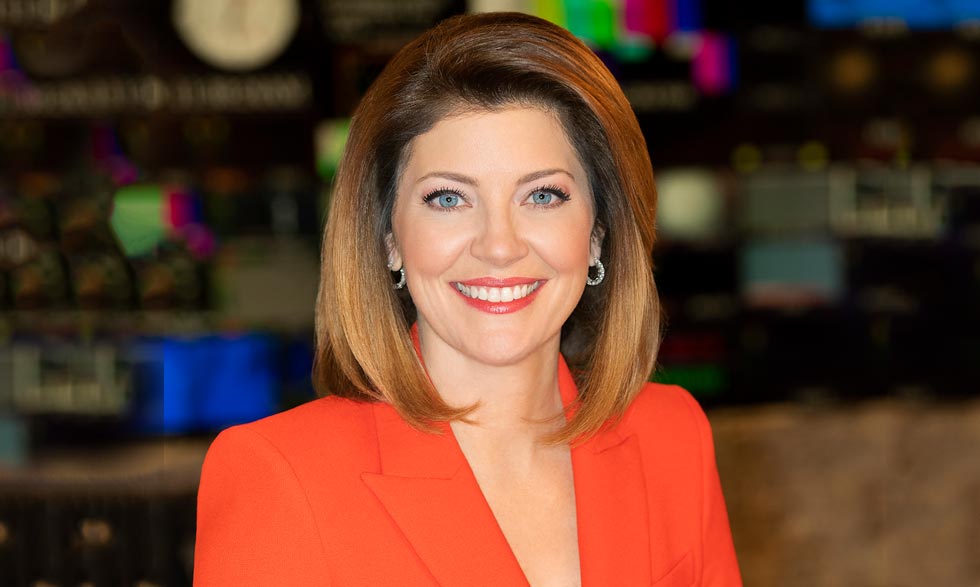
Last updated on June 24th, 2024 at 02:19 pm
Emmy award-winning journalist Norah O’Donnell has spent decades reporting on major events on national TV networks. The “CBS This Morning” anchor and soon-to-be “CBS Evening News” anchor also wears another hat—cancer survivor.
She recently spoke with NIH MedlinePlus magazine about her melanoma and the importance of early detection, healthy living, and trusted health information.
What was your reaction to getting diagnosed with melanoma?
I never thought I would hear the words—”You have melanoma”—the deadliest form of skin cancer.
I admit, the first thing I did was cry.
It took some time, but eventually I realized that as a wife and a mother, I had to be strong.
It is incredibly difficult to be strong when one feels so vulnerable. My diagnosis was the first time I confronted my own mortality. I think it was the first time my children did as well.
How are you doing now?
My dermatologist [a doctor who focuses on skin] made the diagnosis early. I had surgery in January 2017, which included a three-inch cut and about 25 stitches. The scar has healed but is still visible. It is a reminder that early detection saves lives. I feel incredibly lucky.
I also feel healthier than ever. I get regular skin checks. I still enjoy many outdoor activities like golf, tennis, and swimming, with lots of sunscreen and often a long-sleeved shirt and a wide-brimmed hat.
You’ve said that you probably could have prevented your cancer.
Yes. The hardest truth I’ve come to learn is that I probably could have prevented the cancer.
I grew up in San Antonio, Texas. With the temperature pushing 100 degrees in the summer, we spent countless hours in the pool, many times without sunscreen. In high school, I would visit a tanning salon during the winter.
I confessed this history to my dermatologist, and she told me that more people develop skin cancer because of tanning than develop lung cancer because of smoking. She also said people who tan indoors before the age of 35 have a 75 percent increased chance of melanoma.
I know I made some bad choices. Those attempts to get a tan likely led to my cancer. But by sharing this with my children and others, I hope that my story can help us all learn some valuable lessons and have the strength to embrace prevention.
Can you speak to the importance of research like that conducted and supported by NIH?
As the daughter of a doctor and the sister of a surgeon, I know there is no more important research institution in America than NIH. The discoveries emerging from NIH-funded research have led to countless new ways to treat, diagnose, and prevent disease.
I am so grateful to all the specialists who work at NIH who are improving our lives.
Let’s focus on care! Let’s focus on cures! And most importantly, let’s focus on compassion! When we show compassion for ourselves and others, we get healthier.
As a journalist, I’m sure you did a good deal of research.
NIH and medlineplus.gov provided invaluable information. When researching your health, you need a trusted source. I’ll admit I was frightened after my diagnosis, but as a journalist, I delved into the research.
Truth be told, there’s a bunch of baloney and misinformation online. Luckily, I’m from a family of doctors. My dad is a preventative medicine specialist; my sister is a surgeon at Walter Reed National Military Medical Center. They helped me find trusted sources of information.
The NIH website had a useful guide about why melanoma is the most serious type of skin cancer and how to spot a potentially dangerous mole.
What message do you have for those who have been diagnosed with skin cancer? And for other readers?
Skin cancer is the most common form of cancer, but it is also the most preventable. We can take healthy steps to make sure we don’t develop skin cancer. And even if we made poor choices in the past, regular visits to the dermatologist can lead to early detection and a cure. I find that incredibly encouraging.
Is there anything else you’d like to share with readers?
We need to completely rethink our entire approach to health and health care.
As women, we visit the hair salon more often than a nurse or doctor. I get my hair colored every six weeks. What if I visited a health care provider with the same regularity?
There’s nothing more important than our health. Why don’t we spend more time learning about healthy choices and disease prevention? Why isn’t “health class” as important as English or history? I’m hoping to begin a national conversation about how much time we dedicate to healthy living. As my mom reminds me, “Your health is your wealth.”
